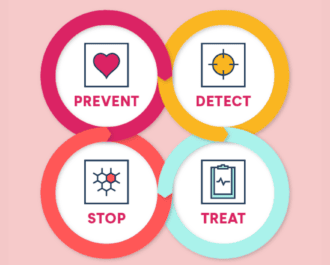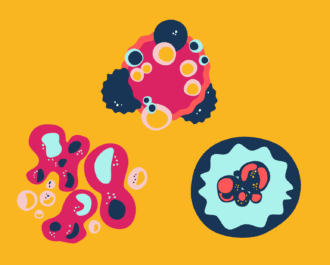
Often exciting scientific advances come from chance conversations or unlikely collaborations. This is certainly the case for a new Australian study into the role of the immune system in cancer. The work started off with a “pie-in-the sky” idea from an immunologist Dr Els Meeusen, who is an expert in the treatment of parasites in sheep.
While the two areas do not seem to have much in common at first, the collaboration (between La Trobe University, the Olivia Newton-John Cancer Research Institute, the Garvan Institute of Medical Research, and the Peter MacCallum Cancer Centre) has produced exciting results.
NBCF-funded study investigator, Associate Professor Elgene Lim, explains that the aim of the study was to better understand how our immune system can help to fight cancer cells in the body.
“This project was built on harnessing some of the similarities between a patient’s immune response to cancer and an animal’s immune response to infection,” he explained.
In the study, samples of cells from the lymph nodes of 20 women with breast cancer were collected. The lymph nodes are small lumps of tissue which filter waste fluid from the body. Due to the presence of toxins in this fluid, the lymph nodes contain high numbers of infection-fighting cells. Researchers used the samples to see what type of immune system proteins, or “antibodies”, were being produced to help fight the breast cancer.
They found that all the women in the study were producing antibodies that were directed against breast cancer, providing evidence that the immune system is helping fight against the tumours. In addition, each of the 20 women produced a different range of antibodies. This suggests that treatments that aim to support the immune system, or immunotherapies, likely need to be personalised for individual patients for the best outcomes.
Associate Professor Lim says that the study highlights the important role antibodies play in cancer.
“Our findings add to the growing literature of the role of the immune system in breast cancer,” he said. “The test we have developed could allow us to identify the type of antibody immune response generated in each specific patient, allowing us to better develop individualised treatment regimes.”
Associate Professor Lim and Dr Meeusen also acknowledged the generosity of the NBCF donors, whose support enabled this “blue-sky” study to be completed with an NBCF Innovation Grant.
More News Articles
View all News




